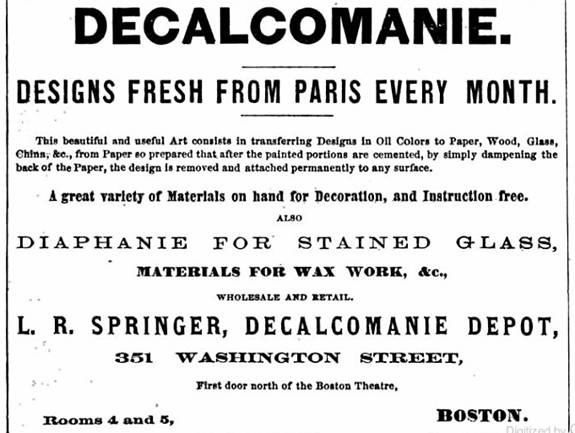Language Lounge
A Monthly Column for Word Lovers
Golden Jubilee
Reaching the half-century mark, from the vantage of human life, is a noteworthy event: whether greeted with dismay or celebration, it's a milestone that we don't often let pass unnoticed. Words, on the other hand, tend to have much longer lifespans than we do, and being a 50-year-old can be considered hardly noteworthy at all; indeed, to the likes of words like betoken (first cited in 1175) or birthday (first cited in 1580), marking a mere 50th birthday may betoken nothing worth mentioning. What does a 50-year-old word feel like? Let's have a look at some words that are currently noted for their first appearance in print 50 years ago, in the heady days of 1960.
A great headliner word that fills the bill is cat suit. Merriam-Webster's Collegiate spells it catsuit and the OED says cat-suit, but both these dictionaries agree that it first shows up in black and white in 1960.

Adrian777 BlackLatexCatsuit (Creative Commons license)
Lest you conclude from this, however, that 1960 really was the gateway to the fun, frivolity, and folderol that characterizes the 1960s for many, another garment also got its first print appearance that year: lab coat.

NASA image in the public domain
Several other compound words show up in 1960 that, while no longer having that new word smell, strike us as mainly being products of modern times and feeling about fifty today. All of them suggest the conveniences or trappings of modern life: these are dinner theater, golden handshake, health spa, theme park, and valet parking.
The only surprising one of these to us is house call. Its original and persisting denotation is, as the OED puts it, "a visit made to a patient in his own home by a doctor, chiropodist, etc." The term has long since gone into extended use to denote a visit by any sort of service professional to a home or place of business, as can be seen in this sample of citations from the Corpus of Contemporary American English:

Most of us today can only dream of a chiropodist who makes house calls, and this has lent the term an air of nostalgia, a Norman Rockwell feel, if not straight back to Currier & Ives – which would lead us to have guessed that house call was in fact much older than 1960. What did we call doctor's visits to the home before then? We don't remember them being so much a part of a doctor's routine that they didn't need a particular name.
You may not think of 1960 as being quite in the digital age, but there were signs that it was coming. Mag tape makes its first print appearance in 1960, as does software, according to the OED (though Merriam-Webster claims to have a citation from 1958). The OED also dates both computerese and computerize to 1960; M-W, again, claims a slightly earlier appearance for the verb. The mainframe was still a few years away and the personal computer may not even have been a twinkle in its inventor's eye at this point, but bionics, COBOL, and magnetic disk all first enjoyed the limelight of the printed word in 1960.
Trend-setter, which both the OED and M-W date to 1960, is another word that doesn't feel exactly new today but that has overtones of today's media-saturated and media-driven living. The synonyms provided in the VT, taste-maker and fashion arbiter, suggest that there was certainly an available slot for what has become the preferred term today – although taste-maker is only a few years older than trend-setter.
Perhaps the most interesting of the words first appearing in print in 1960 are the slang words. They make a strong argument that in the word world, the conditions of birth play a defining role in one's future, and that social mobility for words, if it exists, operates on a glacial time scale. New slang words in 1960 are still slang words today: cockamamie, klutz, kook, and the British phrasal verb sod off. To our ear, none of these words sounds either new or ancient today, which is pretty much what you look for in a 50-year-old. Is kook an exception? In our circle it tends to be used much more by the over-70 crowd than the under-30s, and that gives it a bit of an older-generation patina.
Cockamamie is a particularly interesting word that gives no prima facie clue that it is related to the word decal – but as decal's wordmap shows, there is this other word, decalcomania, lurking in the background, which is the parent of both decal and cockamamie. Decal is in fact only a back-formation from decalcomania, the original English term for the technique of transferring an image by moisture, heat, or pressure from one surface to another. The process, originally French, hit American shores in the 19th century and quickly became a craze.

Boston Directory, 1868. Public domain image (from Google)
Because the paper trail goes a bit patchy in places, dictionaries qualify the connection of decalcomania to cockamamie with "perhaps" and "probably." The story goes like this: in the 1950s, comic strip characters were placed on decals for marketing to children, under the easier-to-pronounce and catchier cockamanie, which seems to have morphed very soon to the more reduplicative cockamamie. A Google Book search on cockamamie turns up a number of interesting citations, including entries in various books about language in which the origins of cockamamie are speculated upon.
Two other words with a 1960-vintage label point up the imprecise nature of word-dating in the digital age, and the fact that determining a definitive date for any relatively new word is a continuing work in progress. Merriam-Webster dates both fraudster and junk food to 1960, while the OED's first citations for these words do not come until the 1970s. We contacted an editor at Merriam-Webster, Ilya Davidovich, who helpfully supplied their very convincing citations for the words. Ilya notes: "As far as the discrepancy between our dates for these words and the OED's citations, it is worth noting that both entries are still "Second Edition" entries in the OED. When the rolling updates reach F and J, respectively, I imagine that the gap will be closed."
Readers of the VT's front page will already be aware, from many of Exec Producer Ben Zimmer's researches, of the sport of antedating English words in print, and it's likely that a few of our 1960 words will be found at some point to have shown their faces a bit earlier in print. For now, however, we wish them all Happy Birthday, and many more years of service.


